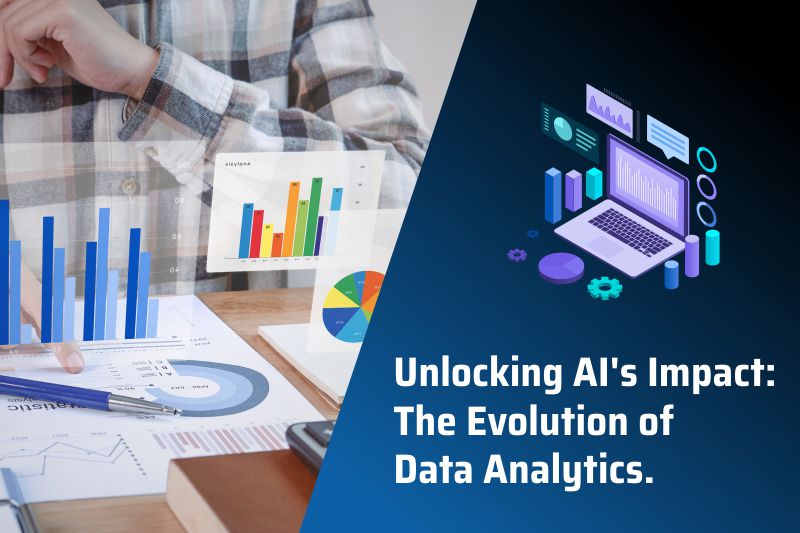Unlocking AI’s Impact: The Evolution of Data Analytics

Introduction:
The Evolution of Algorithms: Algorithms form the backbone of data analysis, acting as analytics engines that process large data sets. Initially, rule-based and customized systems are marked by embedded AI, allowing them to learn and transform from data structures
AI-Powered Predictive Analytics: AI excels at predictive analytics, going beyond historical data analysis to predict future trends. AI-powered machine learning algorithms can identify complex patterns and relationships, enabling organizations to make data-driven predictions with unprecedented accuracy.
Actionable Insights through Machine Learning: A subset of AI, machine learning algorithms, enables data analytics to deliver actionable insights. Through constant learning and revision, these programs reveal trends and anomalies that evade traditional assessment methods, and translate them into strategic actions for professionals.
Enhancing Decision-Making with AI: Integrating AI into data analytics extends to the decision-making process. AI optimizes business processes by automating routine decisions and providing recommendations based on real-time data analytics, allowing human decision makers to focus on strategies on the details of the magazine
Natural Language Processing (NLP) and Sentiment Analysis: Integrating AI into data analytics extends to the decision-making process. AI optimizes business processes by automating routine decision-making and delivering recommendations based on real-time data analytics, allowing human decision makers to focus on strategies on journal articles
Challenges and Ethical Considerations: While AI brings unprecedented benefits, it also brings challenges and ethical considerations. Issues such as biases in algorithms and data privacy concerns need to be carefully considered as AI continues to play a central role in data analysis.
The Future Landscape: As AI technologies advance, the future landscape of data analytics will likely see even more integration. From automating complex analytical processes to enabling real-time decision support systems, AI is poised to be the driving force behind the next wave of innovations in data analytics.
Conclusion: From streamlining operations to facilitating strategic decision-making, AI’s integration into modern data analytics marks a transformative era. As organizations harness the power of algorithms enhanced by AI, the journey from raw data to actionable insights becomes not just efficient but predictive, opening new frontiers in how we leverage data for informed decision-making.

Arrays Unveiled: The Cornerstone of Data Structures















